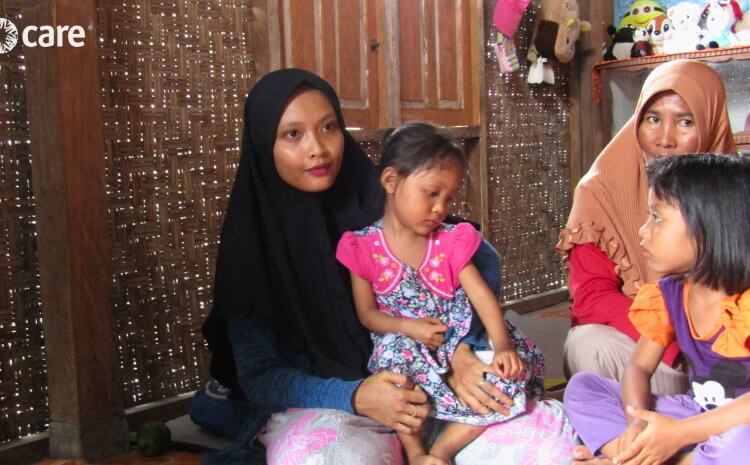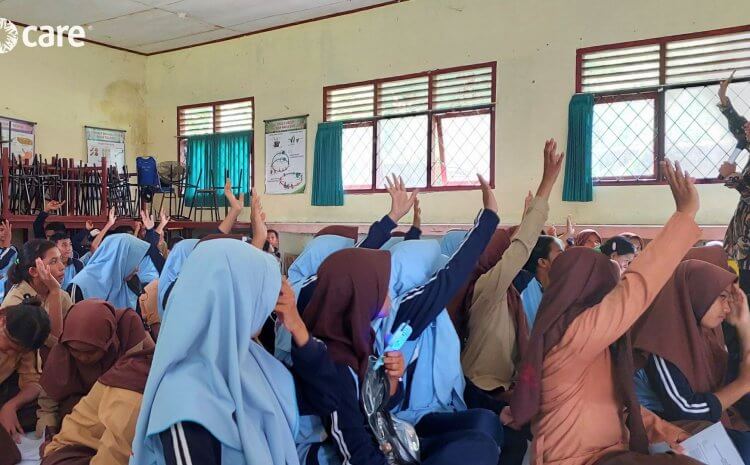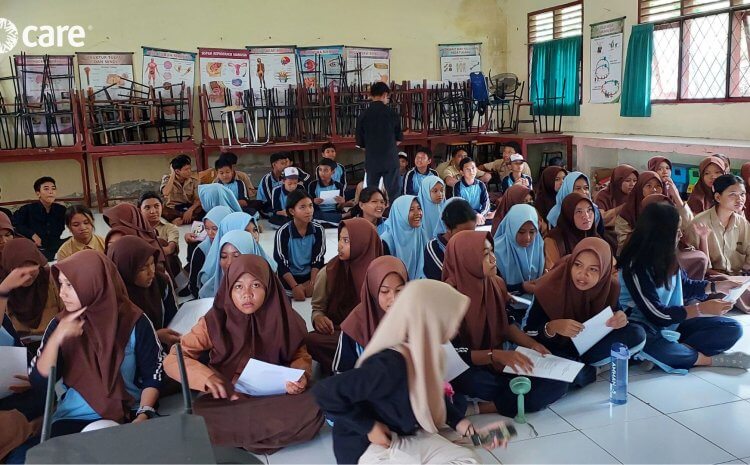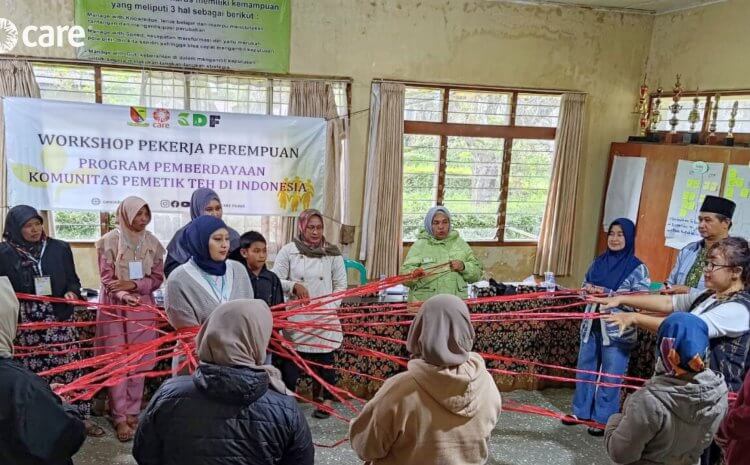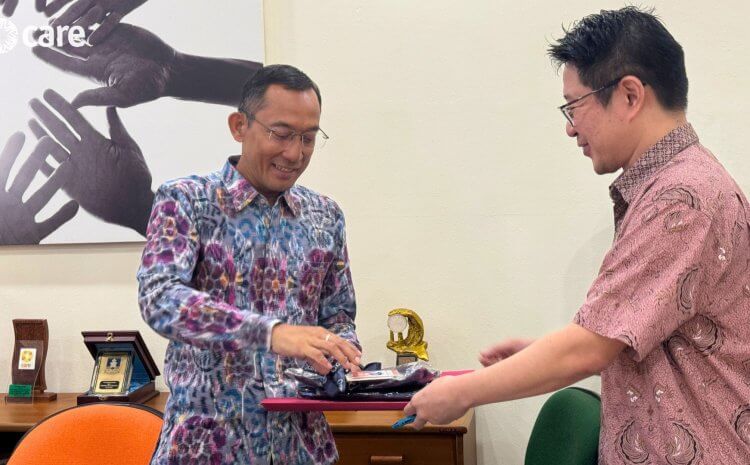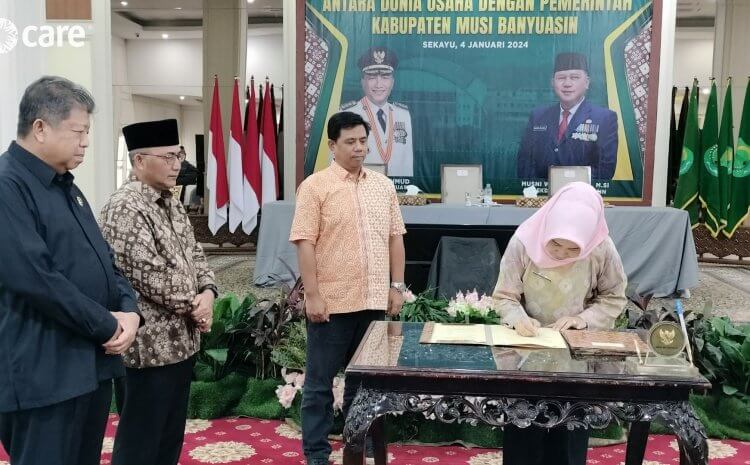Karlina (39 years old), a Housewife from Maluk Village, West Sumbawa District (KSB), shared that she initially did not pay close attention to her child’s growth and development, resulting in her child, Rifki (3 years old) having uncontrolled nutrition, thus falling into the category of stunting. “I didn’t understand about child growth and nutrition. So, I gave my child food randomly and the same menu every day,” she said.
Karlina explained that she regularly brought Rifki to the integrated health post (posyandu). She admitted to being shocked when Rifki’s weight (BB) and height (TB) measurements showed results that did not correspond to his age category. “After Rifki’s weight and height was measured, it turned out Rifki fell into the stunting category. At that time, the posyandu cadre suggested that Rifki be given plenty of food and provision additional nutritious meals (PMT) will be given,” she said.
Karlina recounted that the Healthy Kitchen for Stunting (DASHAT) cadre in the village actively delivered the meals to her home. She also received explanations about balanced nutrition menus suitable for children from these cadres. “The 4-star menu with diverse food options is important for children’s healthy growth and development. The cadres also advised me to maintain the cleanliness of my child and the environment around the house,” Karlina recalled.
To deepen her knowledge about child nutrition and health, Karlina was advised to actively attend parenting classes organized by Yayasan CARE Peduli Foundation (YCP) in collaboration with DASHAT cadres and Family Support Team (TPK). “In the parenting classes, I gained understanding about child nutrition and how to prepare diverse meals. My child no longer gets bored and eats more eagerly. Additionally, the cadres who deliver the meals always monitor my child’s portion size. I now understand that it’s very beneficial for toddlers to be given eggs, fish, and vegetables to enhance their intelligence,” she said. Karlina added that she and her husband, Iwan Wahyudi, are currently developing a nutrition garden on the land they rent. The harvest from their nutrition garden is used to meet Rifki’s nutritional needs and sold to supplement the family income.
Karlina expressed her happiness and relief as Rifki is no longer categorized as a child with stuntig. His weight and height are now normal according to the standard growth and development for his age, thanks to the provision additional nutritious meals (PMT) as the part of the acceleration of stunting reduction program in KSB. This program, a collaboration between PT AMMAN Mineral, the KSB Government, and YCP, is a convergence program with three main objectives: strengthening health and nutrition, strengthening family economic empowerment, and strengthening gender capacity and women’s voices. YCP’s support is also provided through training for Family Support Team (TPK) cadres and establishing DASHAT as the forefront in conducting parenting classes and health and nutrition education for the community, especially in Maluk Village, West Sumbawa Regency. “My knowledge about nutrition, clean and healthy living habits has increased from parenting classes. Therefore, I can prevent my second child, Rayhan Aditya (1.5 years old), from experiencing stunting. Rayhan is growing very healthily with a height above normal,” Karlina concluded.

Penulis: Ikraman, Meiry
Editor: Swiny Adestika




